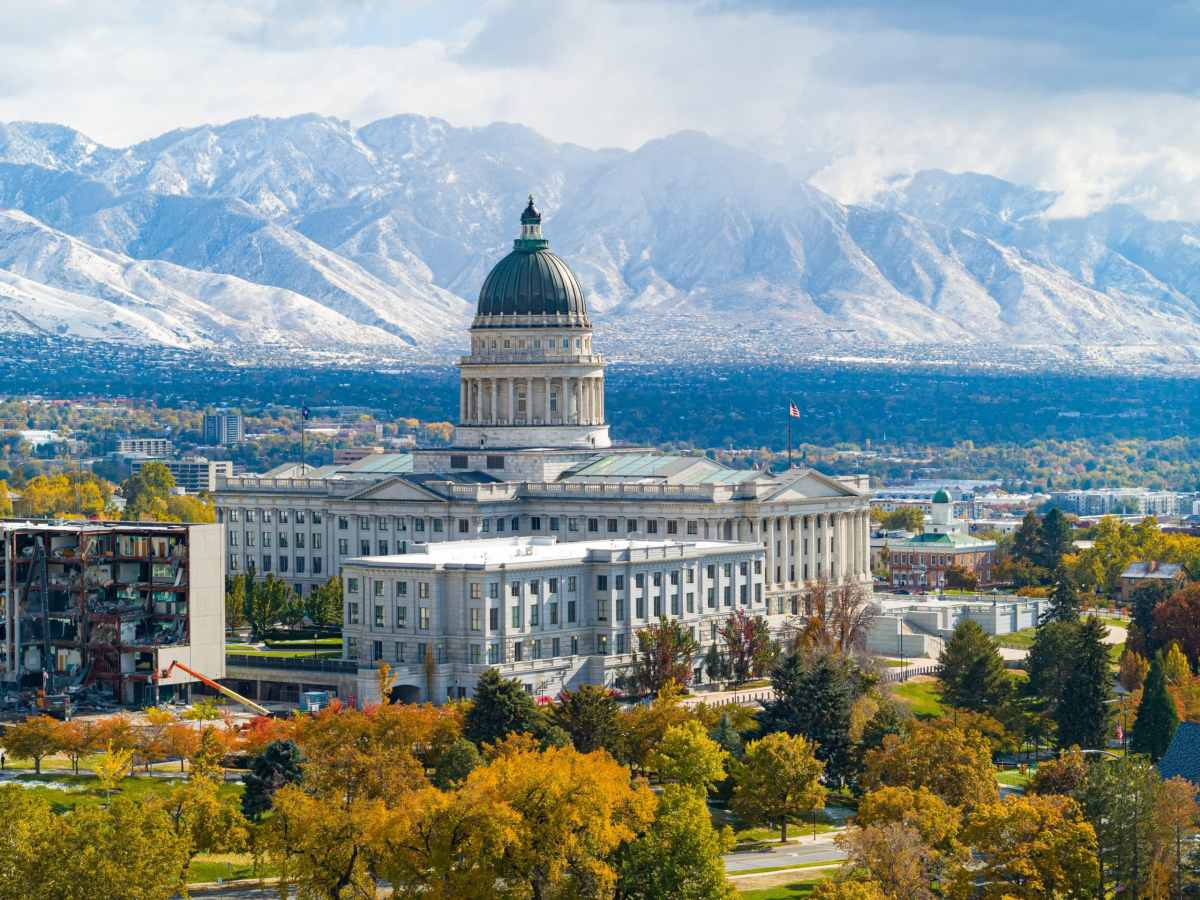Utah lawmakers passed a record number of bills when the 2024 general session ended earlier this month — and for the first time in a few years, there was no punitive legislation aimed at Summit County.
Deputy County Manager Janna Young and representatives from the county’s lobbying team Foxley and Pignanelli met with the Summit County Council on Wednesday to wrap up the legislative session and explain the impacts on the community.
Officials were pleased to hear none of the 591 bills that passed targeted the Park City area, a culmination of more than 12 months’ worth of work on Capitol Hill.
“This is important to know because it has taken a year’s worth of effort … in outreach to legislators and building those relationships and understanding about the uniqueness of this community and also the specific needs as we’re facing tourism, growth and how uniquely situated we are in the state. So, with that, we saw an increase in support,” said lobbyist Renae Cowley.
County leaders have been committed to developing better connections with state representatives over the past few years to dispel false narratives about Summit County, and those efforts have seemed to pay off. Cowley said there’s a vested interest in the community from lawmakers who represent the geographic region as well as champions from House leadership who want to support the future of Summit County.
Summit County also had a major role in leading coalitions about important topics to help bring those discussions forward for other communities. Officials were involved in driving conversations about Transient Room Tax flexibility for EMS funding and raised concerns about a bill setting up funding for a Fairpark District in Salt Lake City.
Ultimately, discussions about the ballpark bill ensured no room tax portion from Summit County would go to funding a stadium on the Wasatch Front. Instead, the bill shifted to tax increment financing, a 1.5% car rental tax increase and new sales tax levies within Salt Lake City.
The bill should serve as an example of what not to do when planning for the 2034 Winter Olympics, according to Cowley.
Critics pushed back against the bill because it was introduced late in the session, relied on almost $1 billion in public funding and required additional taxing authority. Supporters highlight the social, economic and cultural impacts the revitalization effort could bring.
Still, lobbyists said starting early and building a coalition of similarly situated communities will be key to a successful Games as well as addressing issues surrounding TRT flexibility, Housing and Transient Reinvestment Zones and state support for the Kimball Junction interchange project. Collaboration is critical to do that.
“Early on, we talked about sharing the good news of Summit County,” Cowley said. “Helping frame Summit County in a narrative outside of just one development project with the Legislature also helped turn the tide.”
She explained there’s been a message in the past that funding for the S.R. 224 fix would only come with allowing that development, but there’s been a recent uncoupling that shows the road project is important and needed for the community as it stands now — even more so when looking to a future Games.
There was only one piece of legislation related to the Olympics that passed during the session. The bill will kick off the process for the state to start coordinating with the International Olympic Committee about what facilities and infrastructure are needed.
“We know that part of the bid package is that Utah doesn’t need very much. We still have structures. We still have facilities. We still have a lot of things. We don’t really need to rebuild, rebrand, create new infrastructure. We might need to make some improvements but we don’t need to start over,” lobbyist Steve Styler said.
Styler expects the message to stay the same until the bid is awarded. Then, specific projects might be selected. He said it’s essential for Summit County to start planning now and determine what fixes are needed before then.
“If you just remove Summit County from the Olympics, it would make the Olympics really hard to have in the state of Utah. We know how critical Summit County is to the Olympics. It would be impossible to do it without us,” he said. “We simply can’t host the Olympics with Kimball Junction functioning the way it functions today. I don’t know how we would do that. So, there are some very key items that we’re going to need to present.”
Moving forward, the county needs to continue cultivating relationships on Capitol Hill and expand connections into the state Senate to ensure the next legislative session goes just as well.
Legislation passed during the 45-day session will become law on May 1. That’s also the first day bills can be introduced for 2025.
Officials plan to make several presentations about housing, water, land management, transportation and transit during the interim session to continue improving Summit County’s reputation.

